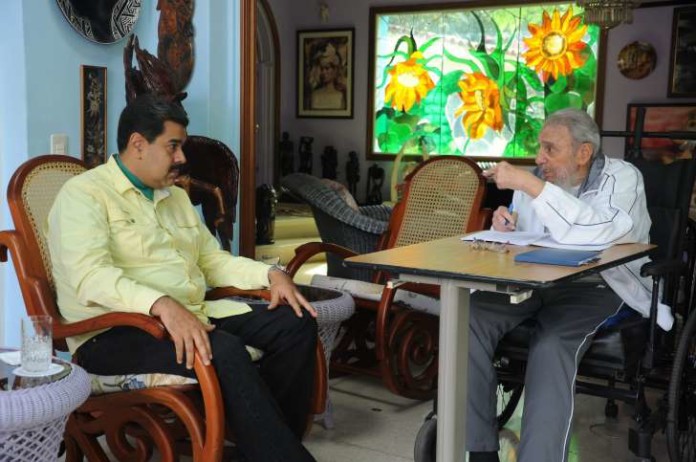This is not how they imagined it.
For years, Cuban exiles in the United States dreamed that the island’s longtime dictator would drop dead one day, ushering in a transformational era of greater freedoms on the island and reconciliation among its citizens on both sides of the Florida straits.
Fidel Castro remains alive. Yet, as President Obama visits the island, transfixing Cubans and resetting their expectations about the future, Mr. Castro is tucked away, out of sight and largely out of mind. A once towering figure in hemispheric politics is gradually fading into irrelevance.
His mixed legacy, to be sure, remains embedded in today’s Cuba.
The repressive apparatus Mr. Castro established to clamp down on dissent was on display hours before Air Force One touched down in Havana on Sunday, as state police officers swiftly roughed up and hauled away protesters. Members of the Cuban power structure’s old guard, who remain lodged in Cold War ideological trenches, warned that Obama’s delegation would include Trojan horses.
The Cuban government still strenuously defends the principles of egalitarianism that Castro imposed on Cubans, and argues that warming relations with the United States will have no bearing on the shape of Cuba’s socialism takes in the years ahead. Many Cubans are proud, to this day, of the values of a Socialist system that gave rise to one of the most literate and healthy societies in a region of rampant inequality.
And yet, the Obama administration’s opening with Cuba has unleashed a desire for change that seems certain to continue growing long after a new American president is sworn in and the octogenarian Castro brothers are buried.
On Monday night, Raúl Castro, the younger brother who took the reins from Fidel Castro in 2008, will host Obama at a state dinner. After that meeting, the anti-imperialist chants that Cuban children have been taught to recite at school for decades will ring increasingly hollow. The long tentacles of the police state will feel ever more intrusive. The rigidity of the centrally planned economy will seem utterly unjustifiable.
On Tuesday, Obama, who is months away from leaving office, will deliver a speech that will be broadcast live on Cuban television. He is expected to speak about human rights, political freedoms and reconciliation. Prominent Cuban exiles — the people Fidel Castro once branded as worms and traitors — will be in attendance, sitting alongside Cubans who chose to stay put.
If Obama succeeds in encouraging economic and political reforms in the short term, it will be through persuasion, rather than the failed policy of subterfuge that did more to tighten than undermine the Castros’ grasp on power. Wisely, Obama is not attempting to dictate exactly how Cuba ought to change, or how quickly. That is a course that only Cubans should chart out. Instead, Obama has recognized that the key to greater freedoms and more prosperity in Cuba lies in building bridges between the Cubans who stayed and the millions who left.
The days of the American embargo on Cuba now appear numbered. The holes the White House has punched into the web of sanctions have enabled American chains to run landmark hotels in Havana, Western Union to establish a system that will make it easier to send remittances and Google to expand access to the Internet. The deepening financial and social ties between the United States and Cuba will do much to erode the waning support for the embargo in Congress.
Yet a handful of American lawmakers remain resolute in their opposition to lifting the embargo. As change on the island continues to gain momentum, they will have to wrestle with a painful reality: As a new, exciting chapter of Cuban history is being written, they too are becoming increasingly invisible, irrelevant figures.
-New York Times













